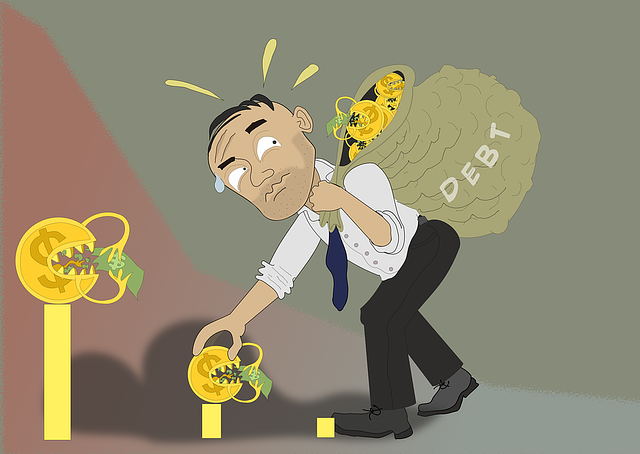Unsecured debt consolidation loans provide a flexible solution for UK residents with bad credit to manage multiple debts by simplifying repayment and reducing interest rates. Government-backed programs and non-profit organizations offer support, financial counseling, and lower rates to help individuals regain control over their finances. Despite challenges, these loans can stop collection calls and foster long-term stability and improved credit scores.
Struggling with mounting debts? You’re not alone. Many low-income individuals face financial challenges, but there are options available to help manage and consolidate debt. This article explores various strategies to overcome financial strain, focusing on unsecured debt consolidation loans, government-backed programs, and nonprofit assistance. We’ll guide you through understanding these options, developing repayment plans, and gaining control over your finances. Take the first step towards financial freedom with these powerful tools designed specifically for low-income individuals seeking debt relief.
- Understanding Unsecured Debt Consolidation Loans
- Exploring Government-Backed Loan Programs
- Nonprofit Organizations and Financial Assistance
- Strategies for Repaying and Managing Debt
Understanding Unsecured Debt Consolidation Loans

Unsecured debt consolidation loans are a popular option for those looking to manage their debts effectively. Unlike secured loans that require collateral, unsecured loans offer flexibility as they are not backed by any assets. This type of loan is ideal for UK residents with bad credit, as it doesn’t rely on your ability to put up security. Instead, lenders assess your financial situation, current income, and debt levels to determine eligibility. The process aims to simplify repayment by combining multiple debts into a single, more manageable loan.
When considering unsecured debt consolidation loans, it’s crucial to compare interest rates and terms from various lenders. Securing the best rates for debt consolidation can significantly impact your long-term savings. With bad credit, you might face higher interest rates, but responsible financial behavior and improved credit score over time can lead to better deals. Remember, a thorough understanding of the loan terms and conditions is vital before committing to any consolidation agreement.
Exploring Government-Backed Loan Programs

Many individuals struggling with unsecured debt consolidation loans find hope in government-backed programs designed to aid financial relief. These initiatives offer an attractive alternative to traditional lending, especially for those with limited savings or poor credit histories. One notable program, often recommended by financial experts, is the Federal Direct Consolidation Loan, which allows borrowers to bundle multiple federal loans into a single repayment stream. This simplification can significantly reduce monthly payments and provide much-needed breathing room.
When exploring these options, it’s essential to familiarize yourself with the top tips for securing an unsecured debt consolidation loan. Government programs often have less stringent requirements compared to private lenders, making them accessible to a broader range of borrowers. Additionally, understanding what happens after securing such a loan is crucial—it involves creating a structured repayment plan and committing to adhering to it. This process not only consolidates debts but also fosters financial discipline, ultimately helping individuals regain control over their finances without unduly impacting their savings.
Nonprofit Organizations and Financial Assistance

Many low-income individuals struggle with overwhelming debt, but there’s hope through nonprofit organizations dedicated to providing financial assistance. These groups offer various services, including counseling and programs designed to help people manage and reduce their unsecured debt consolidation loans. By reaching out to these nonprofits, individuals can gain access to expert guidance on consolidating my loans and significantly lowering interest rates on existing debts.
Through initiatives aimed at reducing monthly payments with debt consolidation, these organizations provide a much-needed safety net for those struggling financially. They offer valuable resources, such as budgeting workshops, debt management plans, and even grant programs that can assist in paying off high-interest debt once and for all. This support not only helps individuals regain control of their finances but also empowers them to build a more secure financial future.
Strategies for Repaying and Managing Debt

Many low-income individuals struggle with a heavy burden of debt, often composed of various high-interest loans and credit card balances. Repaying and managing this debt requires strategic planning. One effective strategy is to consider unsecured debt consolidation loans. These loans allow borrowers to combine multiple debts into one manageable payment at a potentially lower interest rate. By consolidating unsecured debts like credit cards and personal loans, individuals can simplify their financial obligations and stop collection calls that often accompany multiple outstanding balances.
For those with bad credit, securing an unsecured debt consolidation loan might be challenging. However, there are options available through specialized lenders or by working with non-profit credit counseling agencies. These organizations offer guidance tailored to each borrower’s situation, helping them navigate the process of obtaining a debt consolidation loan despite their credit history. This approach not only provides relief from relentless collection calls but also paves the way for long-term financial stability and improved credit scores over time.
For individuals grappling with low income and overwhelming debt, exploring unsecured debt consolidation loans can provide a viable path to financial stability. By understanding the options outlined in this article—from government-backed programs to nonprofit assistance—debt-ridden folks can navigate their journey towards debt freedom. Implementing effective repayment strategies further strengthens their financial future. With the right approach and resources, managing debt doesn’t have to be an insurmountable challenge.
